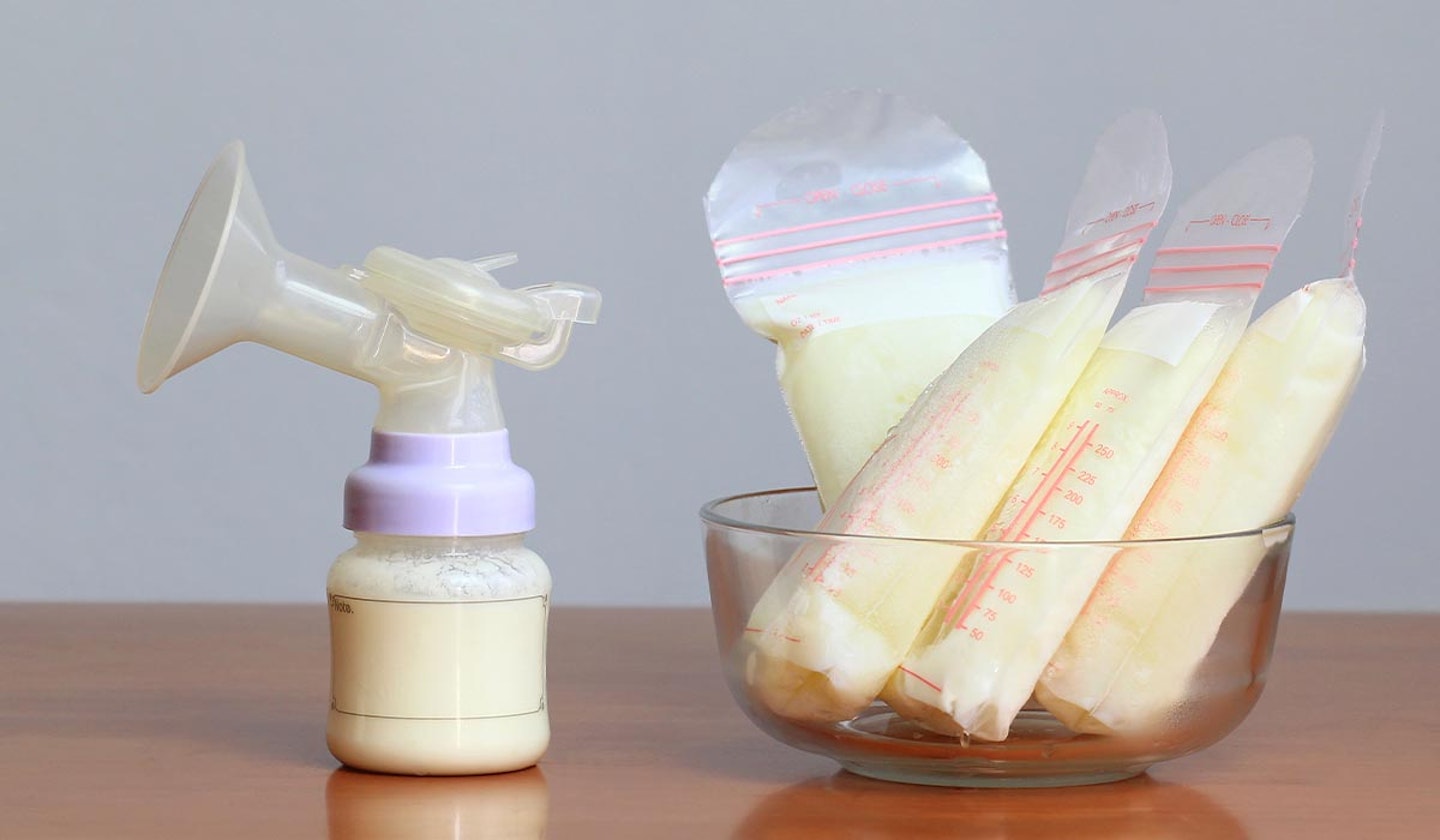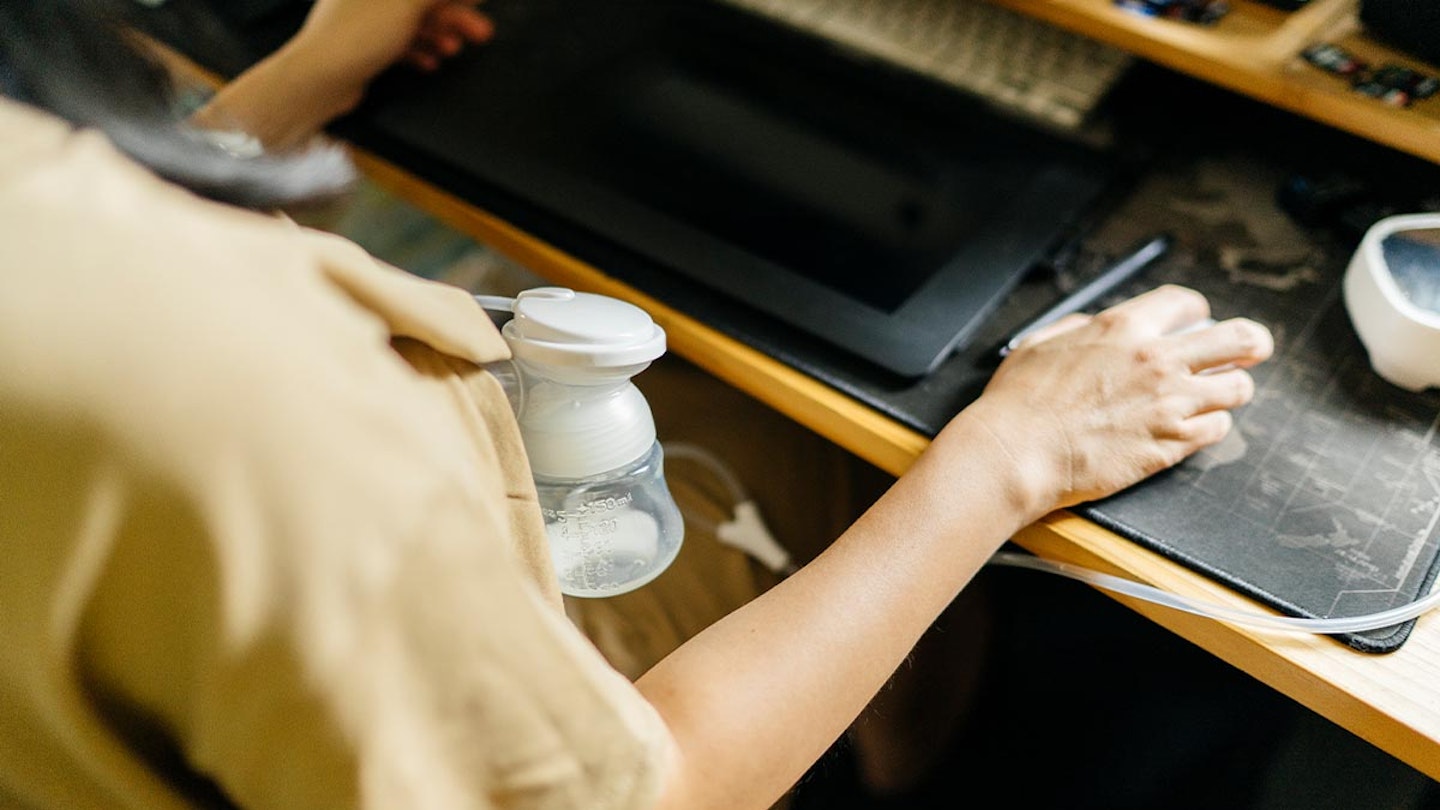When you first have a baby, it can feel like you do nothing but feed them, so knowing how often to pump breast milk using your breast pump, whether you're exclusively pumping or just need to express, is essential.
While we'd always recommend breastfeeding your baby as much as possible when they need a feed, however, we know this isn't always possible. Not only is pumping your milk an effective way of maintaining a good milk supply, it's a good idea for mums who need to go back to work or if you're struggling to get your baby to latch.
Of course, you won't want to be attached to your breast pump all day when you want to spend time bonding with your baby, but you will want to try and mimic your baby's feeding patterns when it comes to how often to pump breast milk
How often to pump breast milk
According to the NHS, you should aim to express your milk 8-12 times per day in a 24 hour period. This may sound like a lot but there is no need to set fixed times in the day and you can just slot it into your daily routine.
Gaps between pumping should be no more than four hours in the day and six hours at night. During the night pump, 3am is the ideal time to express as this is when your body releases the hormone prolactin which produces your milk.
How often you express really does depend on the age of your baby and other variables such as how much time you have, how stressed you are and what time of day it is.
How much milk should I produce when I express?
If your milk is fully in, you should produce around 25-35 oz per 24 hours, that's 750-1,035ml which is around 30-40 ml per pumping session. It's worth noting that you're more likely to produce more milk in the mornings, so you might find the majority of this is produced in the first half of the day.
Of course, every mum and baby are different, so don't feel disheartened if you're not meeting this amount. If you do feel concerned about the amount of milk you're producing, consult your doctor, midwife or lactation consultant.
Pumping schedules
If your baby is poorly or if you're choosing to exclusively pump, then you should start pumping breast milk within six hours after birth. A double electric breast pump is often the best way of establishing a good flow of milk supply rather than a manual breast pump as this is physically difficult work. The more often you pump, the more milk you'll produce which is why so many mums power pump, so it's important to pump 8-12 times per day once baby is born.

Before you begin your pumping journey, you should know how to properly store your breast milk as well as how to use your breast pump, especially for those early morning feeds when you might feel a bit sleepy. We've put an example of a typical pumping schedule below.
Newborn pumping schedule – each pumping session should last around 15 minutes
3am
5am
7am
9am
11am
1pm
3pm
6pm
9pm
12am
4-6 month pumping schedule – each pumping session should last around 15-20 minutes
6am
9am
1pm
7pm
11pm
6 months plus pumping schedule – each pumping session should last around 20 minutes
7am
11am
3pm
10pm
How to drop pumps
When your baby reaches the four or six month mark and you're ready to reduce the amount you pump, it's important to do this gradually.
Start by dropping one of your daily pumpings at a time, wait a few days for your body to adjust to this drop and then drop another time slot until you're at the number of pumps you want per day.
